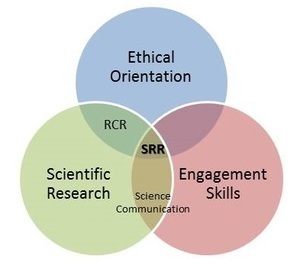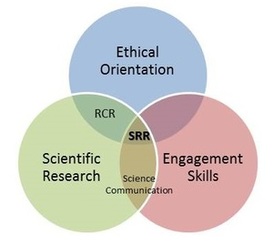

A new NSF-funded program in the Reilly Center for Science, Technology, and Values is encouraging STEM PhD students to go beyond standard research ethics training and look at their research in terms of its social relevance. The people behind the project are Don Howard, Reilly Fellow and former Director of the center, Melinda Gormley, Assistant Director for Research of the center, and Mark Bourgeois, a postdoc hired to implement the program.
Students in this program will learn about the broad social and political context of scientific work as well as its many complex, often nonobvious, connections with society. They will also be trained to communicate and interact better with the general public, with stakeholders in their research, with cross-disciplinary collaborators, and with policy makers. As Bourgeois explains, “We want students to have the tools and the perspective to not only look at their research in its broader social context, but be able to engage that context productively to make their research have the best and broadest impact it can.”
Students in the program will begin with a comprehensive, intensive one-week “Boot Camp” (May 18-22, 2015). As the centerpiece of the program, following the boot camp and for the remainder of the year students will undertake an in-service social engagement project, customized to their research and executed in ongoing collaboration with a mentor. Students will also reconvene in a series of debriefing and support sessions throughout the year and be able to take advantage of an online “virtual ethics common room” to collaborate with fellow participants.
The center is currently accepting applications from first and second year doctoral students in the natural and social sciences and engineering for the inaugural year-long, 3-credit Social Responsibilities of Researchers (SRR) program, to begin this Spring. Participants will receive a $1,400 stipend in addition to the three course credits.
Applications for the program are open now and will be accepted through February 16. As only 15 students per year can be accepted into the program, we expect the application process to be competitive. All applicants will be notified of their status by March 16.
More information on the program is available at reilly.nd.edu/srr. For questions or to submit application materials, e-mail Mark Bourgeois at mbourge2@nd.edu.
This program is made possible by a grant from the National Science Foundation's Ethics Education in Science and Engineering (EESE) program, award number 1338652.